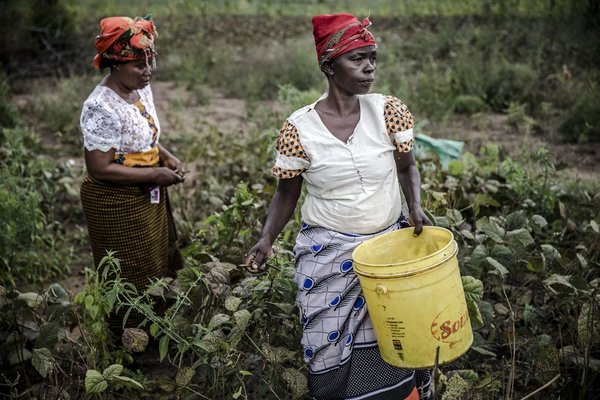 Read this article in French
Read this article in French- Share this article
- Subscribe to our newsletter
More resilience through VSS-compliant markets
Sustainability standards can help to build farmers’ resilience to COVID-19, researchers from the International Institute for Sustainable Development (IISD) stated in April 2021. They surveyed 57 supply-chain actors in six countries - Guatemala (bananas), Colombia (avocados), Guinea-Bissau (cashews), Rwanda (coffee), India (cotton), Cambodia (rice)- to ask how smallholder farmers are coping with the effects of the pandemic and whether certification has helped them adapt.
The respondents—ranging from producers and buyers to investors and government officials—described four ways that voluntary sustainability standards (VSS) have helped smallholder farmers cope with supply chain disruptions amid the pandemic.
- Standards-compliant products can offer producers higher incomes
- VSS-compliant markets often strengthen supply-chain relationships
- Adhering to standards can grow farmers’ customer base
- Certified producers have more access to education and training
According to IISD, conversations with smallholder producers and other supply-chain actors suggested that VSS can help farmers to cope with shocks, but they also revealed some limitations. Thus, VSS alone do not fully protect farmers from international price volatility, which can affect standards-compliant markets as much as conventional ones. They are also dependent on sufficient consumer demand for sustainable products. Furthermore, VSS do not provide farmers with much negotiating power in supply chains that are skewed in favour of buyers.
Nonetheless, governments can and should leverage VSS alongside other measures to improve the resilience of smallholder farmers. IISD recommend that governments take the following five actions:
- Encourage consumers to choose sustainable products through tax incentives or charges.
- Establish regulatory frameworks to promote sustainable agricultural practices and sourcing.
- Connect producers with supportive supply-chain actors who can provide training and safety nets.
- Adapt and extend social protection programmes to support farmers’ recovery after shocks.
- Establish minimum prices to ensure a living income for farmers.
According to the UN, more than 2 billion smallholder producers, workers, and their families have been affected by the economic shock caused by COVID-19. Smallholder farmers are a key part of global production systems, but they are less likely to have access to the financial, environmental, and social resources needed to cope with economic crashes or declines in demand.
(IISD/ile)
Read more at IISD website and download the policy brief Coping with COVID-19: Certification supports farmer resilience





Add a comment
Be the First to Comment